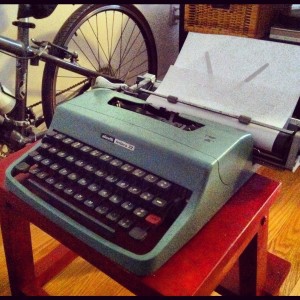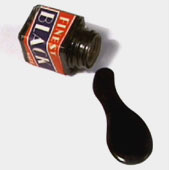Last Friday, the last Brother typewriter manufactured in the UK rolled off the assembly line, thus marking the end of an era.

I remember the thrill of getting my first typewriter. My grandmother took me to a dusty store near the Plaza Bolívar and bought me a manual model that sported an ñ, a ¿, and an ¡. I can’t remember the manufacturer, but I do remember typing a lot of my term papers on it. I lived dangerously, waiting until the last day before the deadline and then I’d dedicate the entire night to writing them. The clackety-clack of the keys hitting the paper was hypnotic and released all of my ideas, while the annoyance of correcting errors — having to roll the paper up a few inches and getting just the right amount of white-out on the little brush so that it would dry quickly and not leave an ugly gob on the page –, kept me focused. Some years later my stepfather bought me an electric model which, thankfully, was not altogether silent. The rhythm shaped my sentences, giving them a hard-boiled musicality that made me feel a little like Hammett. Of course, with time I graduated to the computer keyboard, but I still missed the musicality of typed prose.
For all its romanticism, there’s a very practical reason to use a manual typewriter, as anyone who’s ever traveled in places where electricity’s sketchy can tell you: Your output is not dependent on being on the grid. I’m not trying to be revolutionary or green. There’s just something that I find really elegant about the notion of being able to write wherever I want, free of cables, battery power, or gigabytes. And while I love my Mac, I do find that I get increasingly caught up in all the distractions that the Internet offers. Nowadays in order to get any work done, I have to take my airport card out and park myself someplace where WiFi won’t tempt me. Sometimes when the words don’t come, I don’t take out my typewriter, no, but I do write longhand a lot. In fact, the more difficulty I have in finding inspiration, the more likely I am to take out a pen and paper. It’s messier, for one, which is less intimidating or maybe just more fun. I also feel freer to write phrases or incomplete sentences, or to just throw down words without worrying about grammar or syntax. Or maybe it’s as simple as the fact that I’m part of the last truly analog generation and in order to structure my thoughts I need to use my hands in some way.
All I know is that sometimes I just need to feel the paper on my skin for the words to unspool and that writing onscreen feels like a barrier between me and the Muse.
